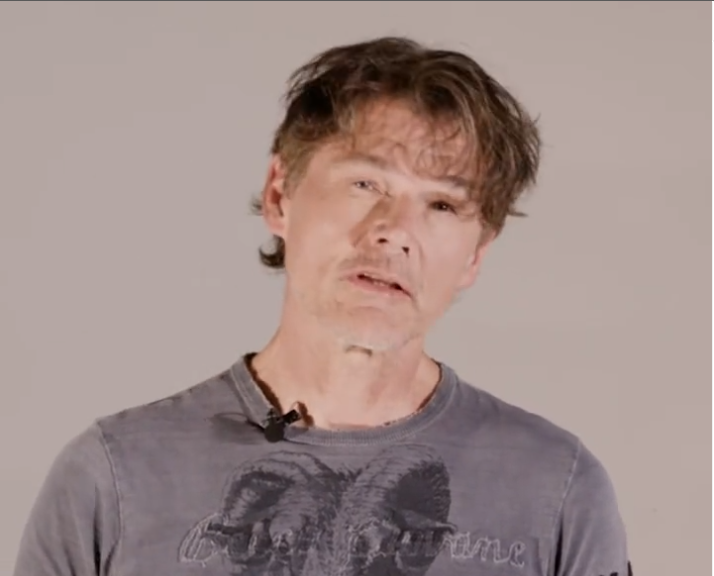Morten Harket’s journey has taken a surprising turn with implications that extend well beyond the stage. As the voice of A-ha, Harket is well-known for his captivating presence and crystal-clear falsetto. However, Parkinson’s disease has drastically changed his creative landscape. His illness, which he was diagnosed with at age 65, has significantly affected his vocal power, which has caused him to reflect on what it means to create when your most distinctive instrument starts to fail.

In an incredibly open interview with biographer Jan Omdahl, he made his announcement with a level of quiet dignity that is uncommon. Harket revealed that he no longer feels like singing, which is a very intimate indicator that says a lot. He said, “That’s a sign.” A man actively reevaluating his relationship with identity, legacy, and creative autonomy is revealed by the emotion contained in that understatement.
Morten Harket: Personal and Career Details
| Attribute | Information |
|---|---|
| Full Name | Morten Harket |
| Date of Birth | September 14, 1959 |
| Age (2025) | 65 years old |
| Nationality | Norwegian |
| Profession | Singer, Songwriter |
| Known For | Lead vocalist of A-ha |
| Medical Condition | Parkinson’s Disease (announced 2025) |
| Notable Procedure | Deep Brain Stimulation at Mayo Clinic (2024) |
| Musical Legacy | “Take On Me”, “The Living Daylights”, solo albums |
| Honors | Knighted in Norway for contribution to music (1992) |
| Recent Status | Focusing on health, songwriting; uncertain about future performances |
| Reference Link |
He has had several rounds of Deep Brain Stimulation (DBS), a particularly cutting-edge neurosurgical technique, in recent years. His brain was implanted with electrodes on both sides in June 2024 and again in December to help control the crippling motor symptoms of Parkinson’s disease. These gadgets send pulses that counteract tremors to a pacemaker-like device that is placed beneath his chest skin. His voice has not returned, despite the fact that the treatment has significantly improved his motor control, enabling him to drive and stay active.
The part Harket’s voice played in culture as well as music is what makes his argument so moving. Songs like “Take On Me” were more than just catchy tunes; they were vocal feats that millions of people would never forget. It’s not just a physical loss of voice. It’s a psychological issue. Relationships are involved. Nevertheless, Harket has decided to share this new chapter rather than back down, allowing us to experience a different kind of performance that is based on vulnerability rather than vibrato.
Numerous famous people have been impacted by Parkinson’s disease. While Muhammad Ali’s presence remained thunderous, his speech gradually slowed, while Michael J. Fox has come to represent tenacity. Ozzy Osbourne has also talked about having the illness but still using music to find meaning in his life. Harket is now part of this group—artists who are redefining endurance while negotiating an uncertain path.
Harket hasn’t completely stopped being creative despite his health issues. He keeps penning lyrics, but he’s not sure if anyone will ever hear them. He remarked, “As an artist and a Parkinson’s patient, I really like the idea of just going for it, with something completely outside the box,” which is remarkably similar to the creative courage that characterized his early career. Writing the songs is a particularly helpful form of persistence—a refusal to be completely silenced—even though he is unsure if they will be completed.
In a heartfelt Instagram tribute, bandmate Magne Furuholmen mentioned how their musical journey will now adapt to Harket’s reality. In addition to thanking the fans who support their music and the shared memories, he said, “Morten and his family are at the top of our list of thoughts.” Something very human is reflected in his words: the desire to preserve legacy while letting go gently.
Parkinson’s disease has effects that go well beyond tremors. Blood sugar control, electrode signals, medication, and mental concentration must all be carefully coordinated to manage the illness. Omdahl, who has known Harket for a long time, called it a rollercoaster, requiring “a round-the-clock effort” to maintain equilibrium. The symptoms are hardly perceptible on good days. For others, the performance is the effort itself.
The public’s response has been overwhelmingly positive. Admiration for Harket’s career and his remarkably effective honesty has been expressed by fans of all ages. It’s a unique trait in a time when projection is more common in celebrities than confession. His readiness to admit, “I don’t feel like singing,” is a human gesture, particularly in a field that relies on constant production.
Harket’s disclosure contributes to an expanding discussion about longevity and purpose in the larger framework of music and aging. Performers like Tony Bennett, who kept on performing even after developing Alzheimer’s, demonstrated that perfect execution isn’t always where the essence of music lies. In a similar vein, Linda Ronstadt’s emotional impact endures despite the loss of her voice due to neurological illness. Despite their bittersweet nature, these tales support the idea that creativity transcends skill and is influenced by viewpoint.
